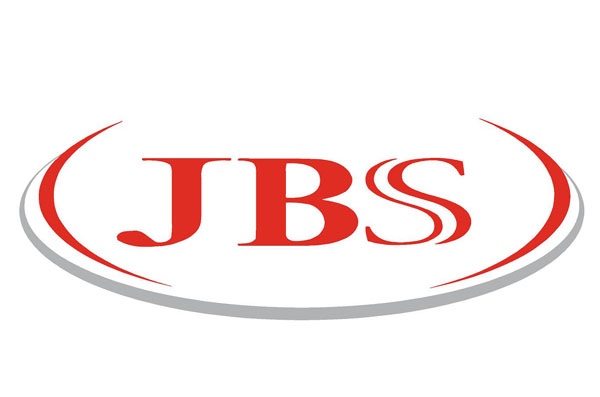Facility adds free, on-site testing of symptomatic team members in coordination with health officials.
April 24, 2020

The JBS USA beef production facility in Greeley, Colo., reopened after the workforce was quarantined for a period of time exceeding recommendations from the U.S. Centers for Disease Control & Prevention. To enhance the company’s existing daily temperature screening efforts, symptomatic team members will now be provided with free, on-site testing, conducted in coordination with the Weld County Department of Public Health & Environment (WCDPHE), before entering the facility. Any team member with a fever or other confirmed COVID-19 symptoms will be sent home immediately.
During the closure, JBS USA said it continued its common practice of deep cleaning the facility, installed a new ventilation system for the fabrication cafeteria, enhanced existing social distancing protocols, finalized previously initiated installation of physical barriers on production lines, conducted additional online training for COVID-19 symptom detection and increased signage in multiple languages to educate team members on ways to proactively prevent its potential spread. JBS USA previously hired third-party epidemiologists from the University of Colorado to evaluate the company’s existing COVID-19 protocols and procedures at the facility.
“After voluntarily closing the Greeley beef facility in an effort to stop potential spread among our workforce and contribute to community containment, we have taken proactive steps to complement our existing COVID-19 prevention efforts in the facility and continue to provide a safe working environment,” JBS USA head of human resources Chris Gaddis said. “We believe our partnership with the CDC, the National Institute for Occupational Safety & Health (NIOSH) and WCDPHE has enhanced our prevention protocols and will give our team members confidence to safely return to work.”
Officials from CDC, NIOSH and WCDPHE visited the Greeley facility multiple times during closure to assess, validate and improve the company’s reopening plan. JBS expressed appreciation for the joint efforts of the public health agencies to get the critical-infrastructure food facility back to work.
The facility suspended harvest operations on April 9 and fabrication on April 15. Harvest operations resumed April 24, and fabrication will resume April 27. CDC recommends a seven-day isolation period from the time symptoms first appear, including a three-day post-symptomatic recovery period, as well as improvement in respiratory symptoms. Company team members were quarantined for 12-15 days and encouraged to shelter in place in accordance with the state of Colorado’s stay-at-home order. More than 275 new cases have been reported in Weld County since the plant closure.
Team members were paid during the plant closure, and the company said it proactively contacted employees through text messages, phone calls and social media to provide tips on what to do while away from work, in accordance with CDC and WCDPHE recommendations. Since April 2, all team members have been receiving temperature checks prior to entering the facility, and masks have been provided to team members and are required to be worn at all times on company property.
The health and safety of the team members providing food for the nation remains the company’s top priority. JBS USA said it will not operate a facility if it does not believe the facility is safe. In addition to the new screening and testing protocol, the company previously implemented the following preventive measures at the Greeley facility to provide a safe working environment for its team members:
Health and safety
• Health screenings of every person before they enter the facility each day, including temperature checks and symptom screenings;
• Providing extra personal protective equipment (PPE), including masks, and
• Restricting access to the facility and not allowing visitors.
Social distancing
• Social distancing by staggering starts, shifts and breaks and increasing spacing in cafeterias, breakrooms and locker rooms;
• On-site tents to create more space during breaks and lunch times;
• Plexiglass dividers on all lunch tables, both inside and outside;
• Signs and traffic flow markers throughout the facility;
• Lines on the floors and walls to reinforce a 6 ft. separation at all times, and
• Physical barriers between team members while working on production lines.
Sanitation
• Hand sanitizing stations installed throughout the facility;
• Boot foam sanitizer when entering the facility;
• A sanitization team who continuously cleans and sanitizes the facility, including common areas beyond the production floor, and
• A trained third-party sanitation crew fogging key areas in the plant at least once a week.
Benefits
• Removing vulnerable populations from facilities while offering full pay and benefits;
• Requiring sick team members to stay home from work;
• Waiving short-term disability waiting periods;
• Providing free 100% preventive care to all team members enrolled in the company’s health plan, and
• Offering free LiveHealth Online services for team members enrolled in the company’s health plan that allow for virtual doctor visits at no cost.
Education and training
• Management and supervisor training on what to look for and how to prevent COVID-19 in the plant;
• Extensive materials throughout the facility regarding team member welfare and social distancing;
• Signage noting the requirement of wearing a face mask and how to properly wear it, and
• Educating team members on COVID-19 symptoms, how to prevent the virus and the importance of practicing social distancing at home and in the community.
You May Also Like

.png?width=300&auto=webp&quality=80&disable=upscale)

